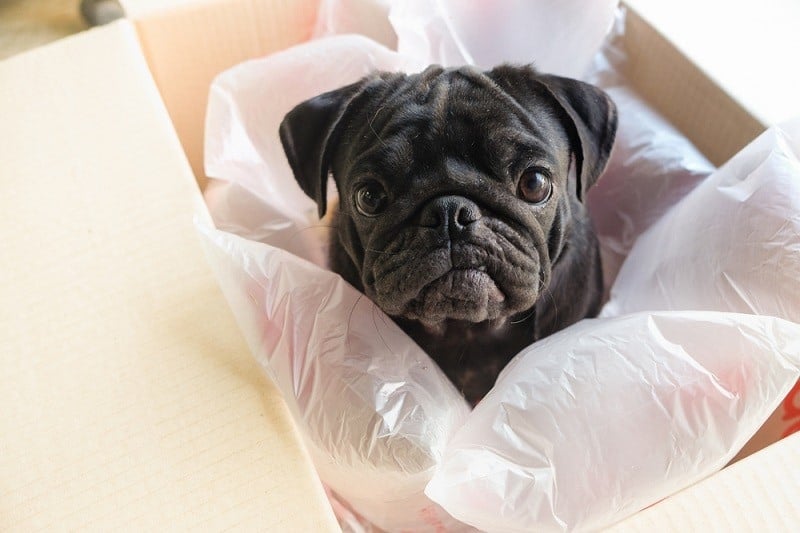If your dog ate plastic and you’re completely sure of this, then stop reading and take your pet to the vet or emergency vet right away. However, if you’re unsure that your dog ate any plastic or if you just want to know what to do if this ever happens to your pet, read on.
What Happens if a Dog Eats Plastic?
Plastic is not digestible, so it will not break down in your dog’s stomach. Regardless of whether your dog has swallowed a plastic toy whole or has chewed and swallowed bits of a plastic bag, as soon as the plastic hits the stomach it can start to cause problems. Most commonly, the plastic gets stuck and forms a blockage – this means that food and water are unable to pass through the stomach or small intestines.
But blockage isn’t the only concern. Chewed plastic can have sharp edges, which have the potential to become lodged in the wall of the stomach or intestines. This can cause inflammation or even a dangerous perforation (hole or tear in the lining of the intestines). Symptoms may not be apparent straight away and could take a couple of days to develop. Fragments of plastic could also cut your dog’s mouth and tongue, and choking is also another possible risk.

My Dog Ate Plastic Because He Was Hungry?
Some dogs have seemingly bottomless appetites. They look for food everywhere they can find it! So, if you leave plastic food containers on the counter, full or empty, yiu can bet a hungry dog with a powerful sniffer will notice. Just ask anyone who has left last night’s takeout or a Tupperware container full of cookies out!
Dog shaming posts can be funny. Plus, some overly anxious or hungry dogs have a reason for seeking something to chew on. But, a dog ingesting a foreign object is definitely not a laughing matter! There are varied levels of health hazards possible if a dog swallowed a plastic toy or a dog swallowed plastic bags, for example.
Follow your veterinarian’s advice
If your vet wants you to bring your dog into the clinic for an examination, then please do so. Early treatment is more likely to be successful. Your veterinarian may recommend that you monitor your pet for signs instead of going straight to the clinic – be sure to find out exactly what they want you to look for, and how long it would take for the plastic to pass. They may also recommend home treatment, such as inducing vomiting, but you should only do this if your veterinarian recommends it – there is a risk that the plastic could get stuck on the way back up, which is much harder to treat.
FAQ
How long does it take for a dog to pass plastic?
What happens if a dog eats a small piece of plastic?